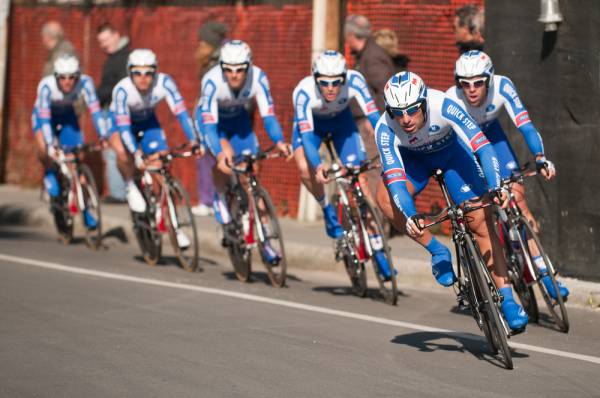There are many scenes in this film A miracle, about the 1980’s the United States 1980 Olympic hockey team, a junior team that conquered the then-Soviet Union and went on to win gold, terrified me. This includes one in which the group has recently come together. At the conference, head coach Herb Brooks repeatedly asked the players, “Who do you play for?” Each player responds with his or her alma mater, and this results in the new team being forced to run very fast on ice until they are exhausted.
It was not long before team captain Mike Eruzione responded, “I play for the United States of America!” that Brooks completes the sprints. With these words, Eruzione testified that Brooks has been watching the players begin to identify themselves as part of a defined team, that they prioritize their new membership beyond their history. (At the time, he may not have set the pace for anything else, but he received the message.)
Athletes in each of these strokes are invited to join the team, whether they are playing on a team or in a competition. Appropriately identifies with the team and shows a sense of belonging along with loyalty so that the team makes a mark in addition to the identity of the athletes as part of it. Developing the team’s identity can go a long way in building trust and relationships, which are essential for our success in personal and team sports. This means that coaches and athletes need to understand the meaning of these systems and ensure that they are sound.
While coaches and players interact freely and work to achieve the stated goals, which are well-divided, the ability to work and learn with the team can also come with the activities that teachers call “secret learning.” This means education, mental habits, and acceptable behavior that everyone in a group – class, group, group – learns indirectly, through observation or other child-centered methods. In other words, the stated goals of each team can only be part of what your teammate learns and accepts as appropriate. For example, a new team member could hear a locker room discussion between former players who have been working with them and make some changes from here on about what is required to cooperate with them.

To find out the basics of secret education that may be relevant to your own education, as well as how it affects the unity of your organization, consider the following in terms of flexibility and interaction:
- Who are the leaders in a group – those who have an influence on the behavior of others? Are these the people you have chosen as leaders? If not, would you need to step in and make sure the messages are compatible?
- What messages are being preached, secretly and secretly? Are the hidden messages compatible or defamatory?
- How does your behavior run in public? Do you articulate your expectations and adhere to them?
As you begin to pay attention to organizational changes as well as the potential hidden lessons, you may find an opportunity to confirm the connection between messages and expectations. Here are some steps you can take to strengthen your unity:
- Hold regular meetings with team leaders and other leaders, to make sure they understand their expectations and learn about any challenges that may need to be addressed. Ask for their ideas on the best entry points – they should have the knowledge of the players who can match your ideas.
- A team of runners to train and exercise, and to change combinations frequently so that the same people do not work together all the time.
- Join new members and an experienced friend to help you lead the team.
Team strength and secret education can have a profound effect on team performance. With a little knowledge and a few simple techniques, courses can increase the chances that these impulses are positive.
Photos courtesy of Shutterstock.